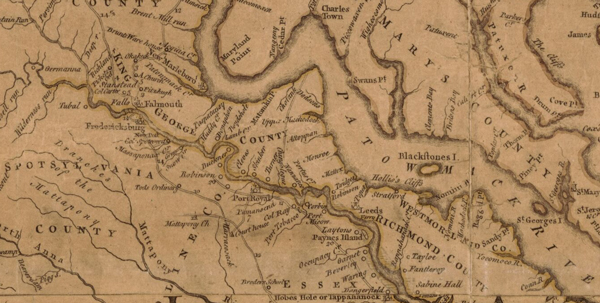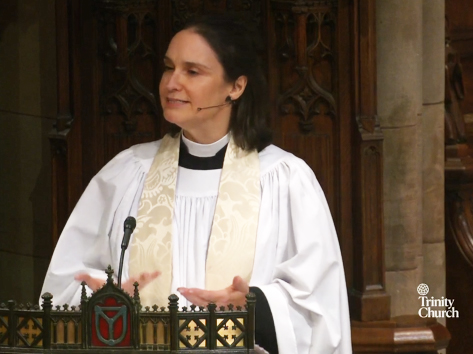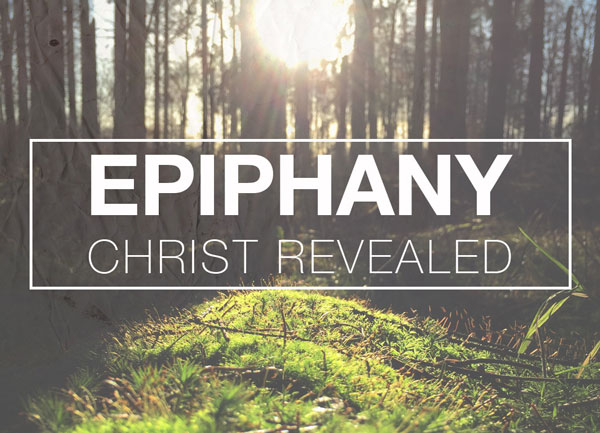Epiphany occurs January 6!

Adoration of the Magi – Bartholomäus Zeitblom (c. 1450 – c. 1519)
The English word "Epiphany" comes from the Greek word epiphaneia, which means "appearing" or "revealing." Epiphany focuses on God’s self-revelation in Christ.
Epiphany celebrates the twelfth day of Christmas, the coming of the Magi to give homage to God’s Beloved Child.
The Epiphany celebration remembers the three miracles that manifest the divinity of Christ. The celebration originated in the Eastern Church in AD 361, beginning as a commemoration of the birth of Christ. Later, additional meanings were added – the visit of the three Magi, Christ’s baptism in the Jordan River with the voice from heaven that identifies Jesus as God’s son, and his first miracle at the wedding in Cana. These three events are central to the definition of Epiphany, and its meaning is drawn from these occurrences.
In either case, the emphasis is upon God making himself known to the world through Jesus, the divine Son. During Epiphany, the divine words at Jesus’ baptism—"You are my child, my Beloved"—are spoken to every child of God.
The theological essence of Epiphany is found in 2 Timothy 1:10: "And now he has made all of this plain to us by the appearing of Christ Jesus, our Savior. He broke the power of death and illuminated the way to life and immortality through the Good News." If you were reading this verse in Greek, you’d find the word epiphaneia where we have "appearing." God has made "all of this" plain to us through the epiphany of Christ.
1. Epiphany is the season of the Church year from January 6 to the beginning of Lent which we experience the unfolding of the identity of Jesus as the Son of God through scripture and song.
2. Epiphany is the season of wonder. Epiphany invites us to take the long view of her or his vocation and God’s ministry in the world. The season of Epiphany joins, like Christmas, mysticism and mission in revealing God’s vision for all creation and humankind.
3. Epiphany is about the unexpected: unexpected joys and synchronicities and unexpected challenges and tragedies. Epiphany is filled with unexpected revelations that change our minds and ways.
Some examples – In Epiphany, the magi take another road home; Peter discovers that God’s grace is wider than he ever imagined; and the disciples experience Jesus as transfigured, like Moses, on the mountaintop and then, to their chagrin, realize that beyond the transfiguration stands a cross on the horizon.
Let’s take the magi. The magi left the land they knew, following a light to a place of uncertainty, and discovered the savior of the world, and it changed, literally, the direction of their lives.
As Matthew puts it, "They returned home by another way." The old way of traveling would no longer work. They needed to follow a different path.
At a critical moment in their journey, they realized what the lyrics of that song say: "
Today is where your book begins. The rest is still unwritten." Changing direction
Eventually, all of us take routes that we had never expected to travel, whether these involve changes in employment, health, relational, or economic status. When life forces us from the familiar highway onto an uncharted path, we are challenged to experience holiness as we travel on another road. The path is seldom easy, but within the real limitations of life, we may discover unexpected possibilities for vocation, mission, and transformation.
4. But, a spirituality of Epiphany reminds us that God is a fellow adventurer on every road we travel. Awakened to divine companionship, every path can become a holy adventure with surprises and epiphanies around every corner
While Christian wisdom has affirmed that God is omnipresent, most of us have never fully explored what it means to assert that God is everywhere. At the very least, the doctrine of divine omnipresence means that God is present as our companion on every pathway—in certainty and uncertainty, and in celebration and grief. It means that as we face the call of new horizons, whether by desire or necessity, often as pilgrims without a map, there is a divine wisdom moving through our lives, giving us insight, providing synchronous encounters, and awakening us to unexpected energies.
It is about what happens to those who are searching, and who encounter Christ.
It is, whether we realize it or not, about a kind of conversion; about finding another way of walking the journey of life, a way that has been transformed by a star. By a light. By Jesus Christ himself.
5. Fundamentally, the story of the Epiphany is about discovery—following a star to the source of salvation. The readings are overflowing with references to the light: "Rise up in splendor, Jerusalem," Isaiah cries out. "Your light has come. The glory of the Lord shines upon you."
There is a sense of redemption and relief, of deliverance and hope. Indeed, once the magi arrive in Bethlehem, they cannot contain themselves. As the gospel puts it: "They were overjoyed at seeing the star." They had arrived at the source of all their yearning, and all the searching. They had found what they were looking for.
People claim in our lives of "having an epiphany." In this case, an epiphany has come to mean a sudden insight into the truth or reality of an event or situation. Here, the word "epiphany" means seeing more than meets the eye; discovering the sacred embedded in ordinary events; and seeing our context as if for the first time, bathed in God’s presence. The reality of divine wisdom invites us to awaken to holiness in the quotidian.
6. Epiphany is the season of light and transfiguration. On Epiphany, the Church is drenched in light. It begins with a star guiding the magi and ends with dazzling light illuminating Jesus and his followers. For those who live in the spirit of Epiphany, all things dazzle with divine light. Even darkness reveals divinity in the hidden movements of growing things, whether in the womb or in the good earth.
Read more







 Second Sunday after Christmas
Second Sunday after Christmas

